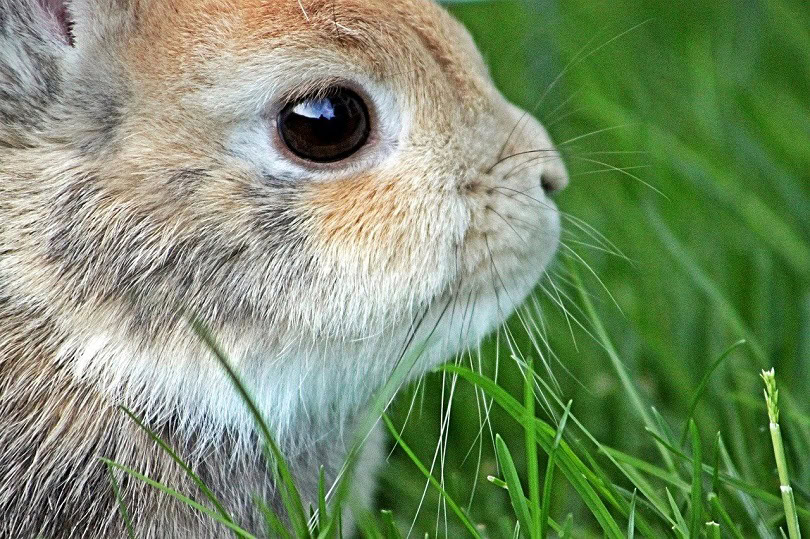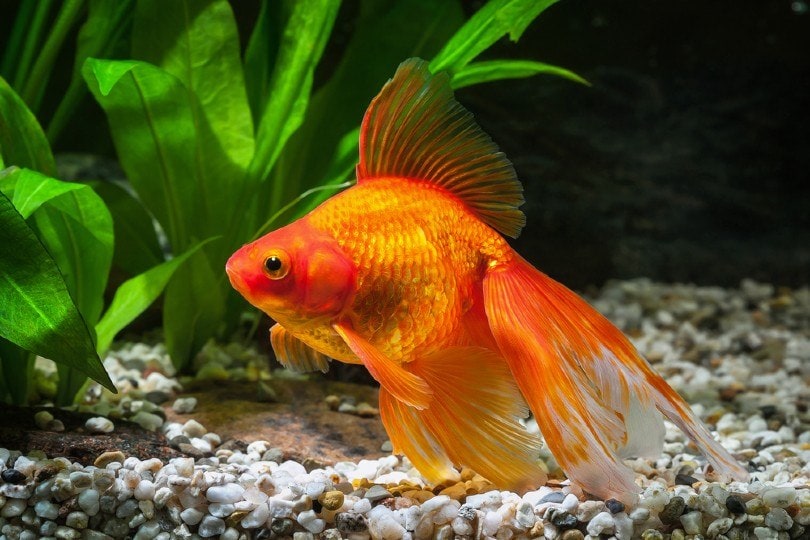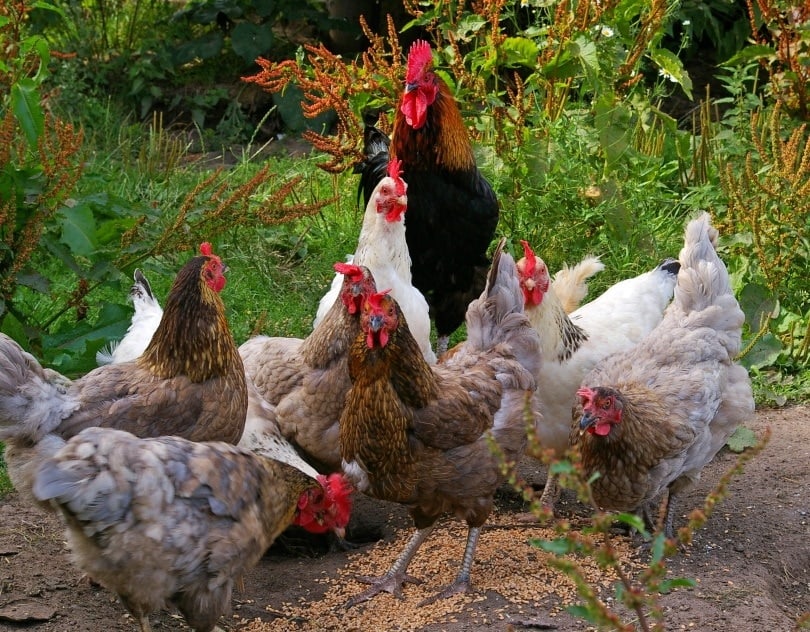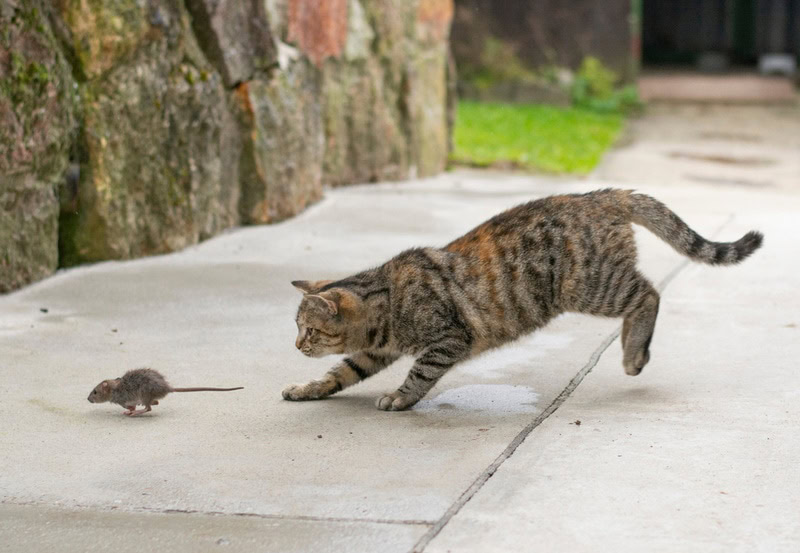VET APPROVED

The information is current and up-to-date in accordance with the latest veterinarian research.
Learn more »If you are fascinated with rabbits or are looking to purchase one as a pet, you may be interested to know what color eyes you can find and how rare each one is. We’ve scoured the Internet to create the largest list of rabbit eye colors we could, and we are going to present it to you here, along with a short description of each, to let you know how rare it is. We think you’ll be surprised to find out there are so many varieties, so keep reading.
Eye Colors
Let’s take a look at each color in order of how common it is.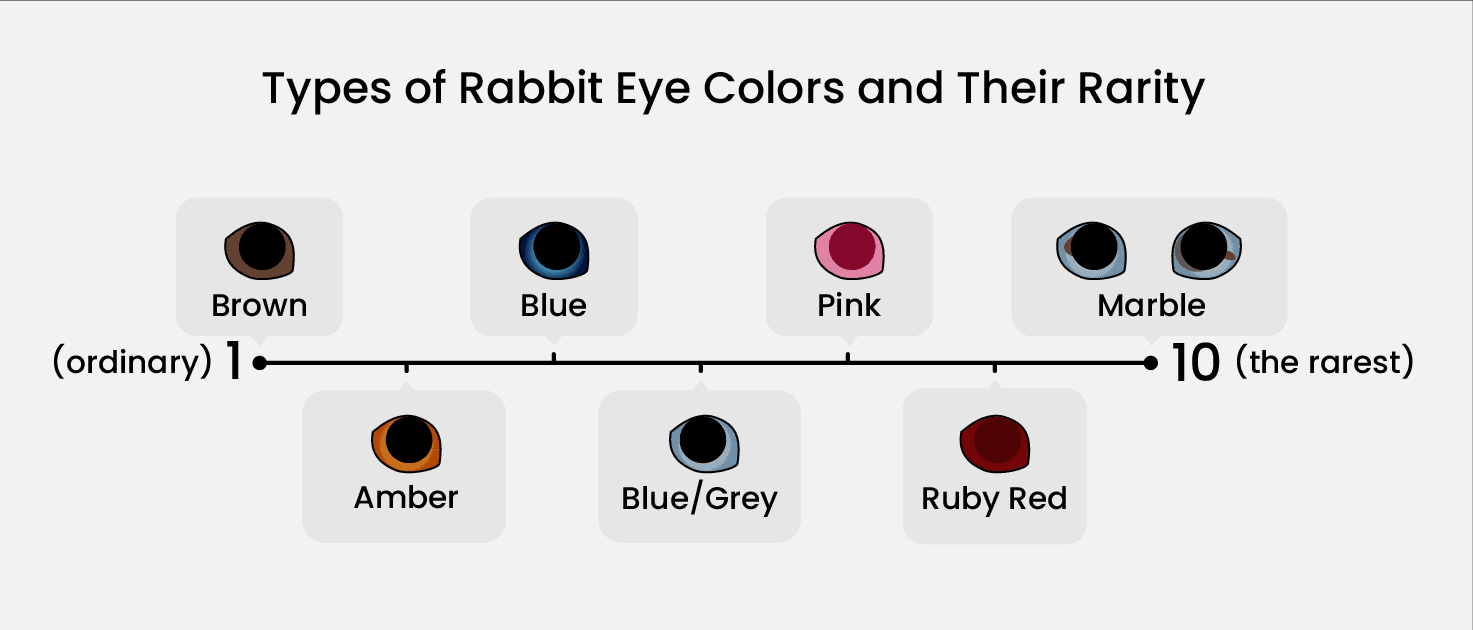
The 7 Types of Rabbit Eye Colors and Their Rarity:
1. Brown
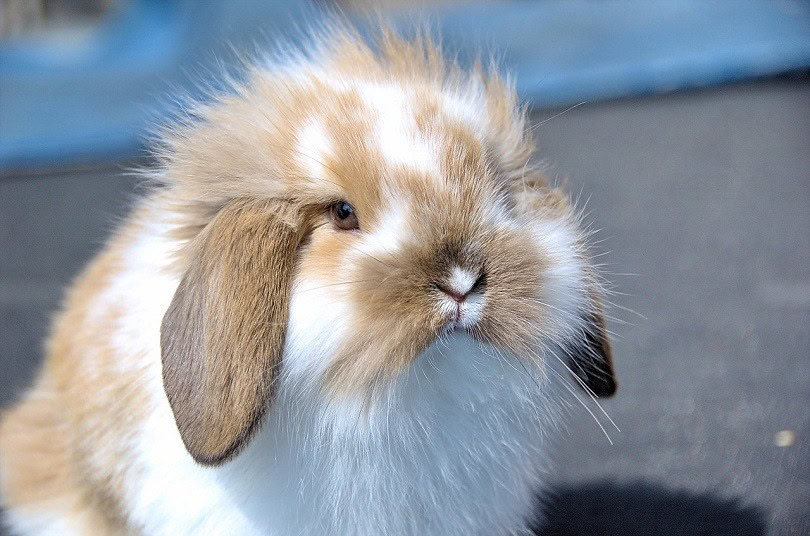
Brown is one the most commonly seen eye colors in domestic rabbits. Within the brown family, you can find at least four distinct shades, from light to dark brown, depending on the amount of melanin (pigment) present in the iris.
2. Amber
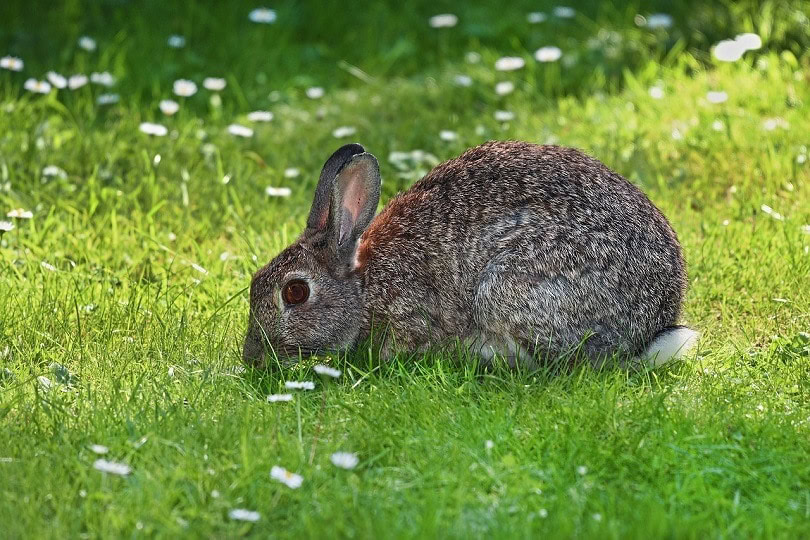
Amber eyes are common in wild rabbits but very rarely seen in domestic rabbit species. Wild hares are often confused with rabbits, but they are larger with bigger ears and will often have amber eyes. Amber eyes are the result of less pigmented irises.
3. Blue
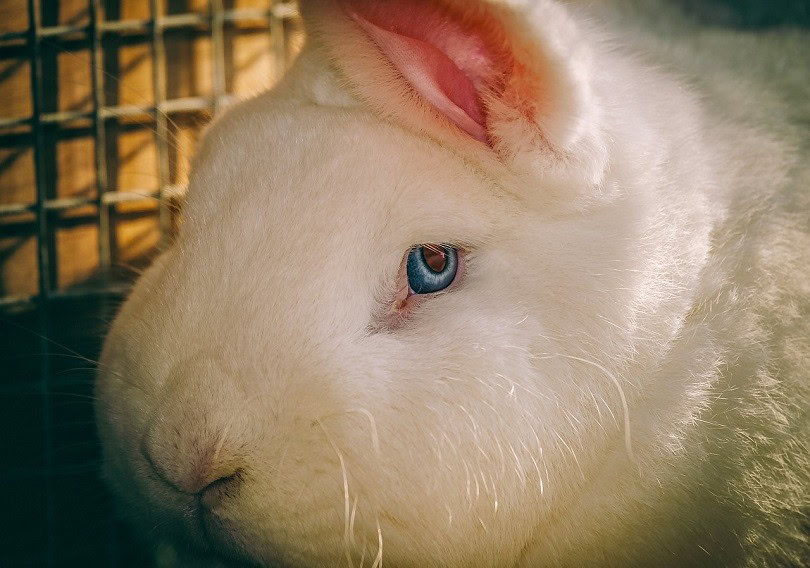
The blue eye color is a recessive genetic trait. This means that both of the parents have to carry this trait in order for their offspring to have blue eyes. Counterintuitively, blue eyes are not the result of blue pigment. Instead, they result from a lack of melanin in the iris and the scattering of light.
4. Blue/Grey
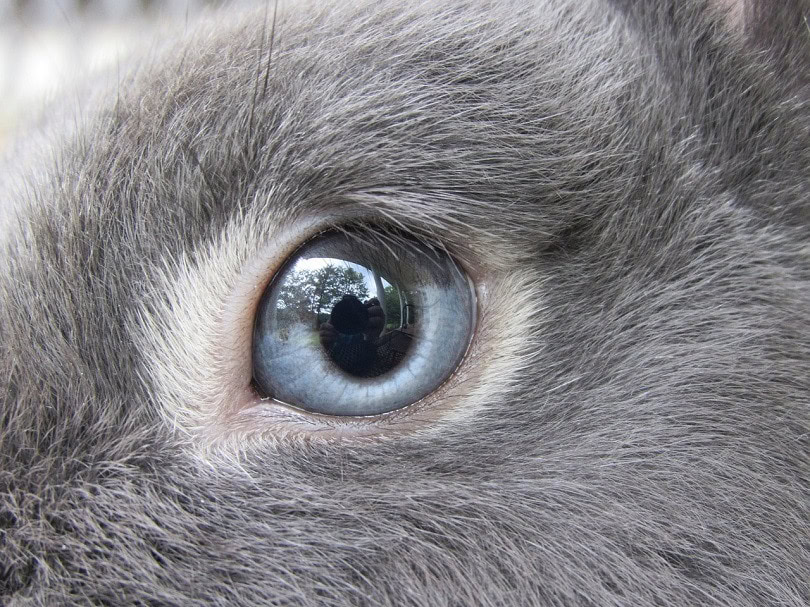
The blue/grey eye color seen in some rabbits is less common than the others. This unique eye shade is usually linked to specific coat color genes, particularly those responsible for dilute colors like blue, lilac, or opal. The greyish tone is more about how light interacts with the eye and how much pigment is present in the iris.
5. Pink
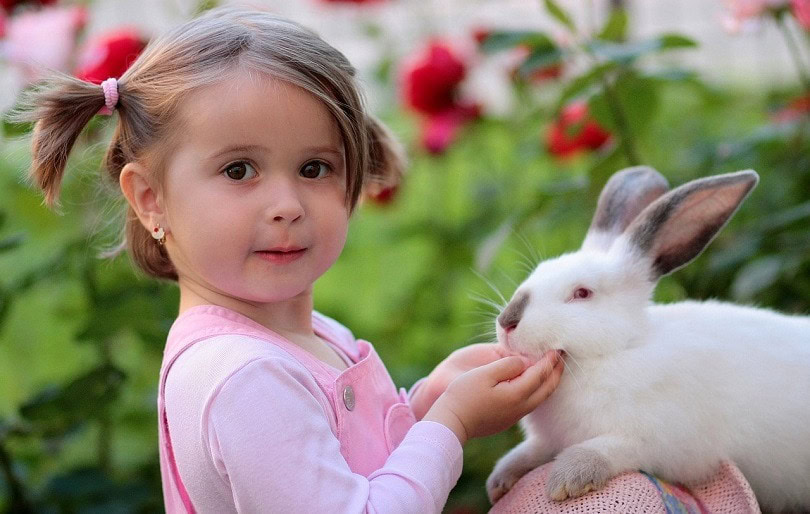
A rabbit with pink eyes is rare, but like the ones we’ve talked about already, it’s a natural color. It occurs usually due to albinism—a genetic condition caused by inheriting two copies of a recessive gene that removes pigment from the eyes and fur. These eyes don’t actually contain pink or red pigment; instead, the color comes from light reflecting off the blood vessels in the eye, which is visible due to the lack of melanin. While red-eyed rabbits are rare in the wild, they are more common in domestic breeds due to selective breeding.
6. Ruby Red
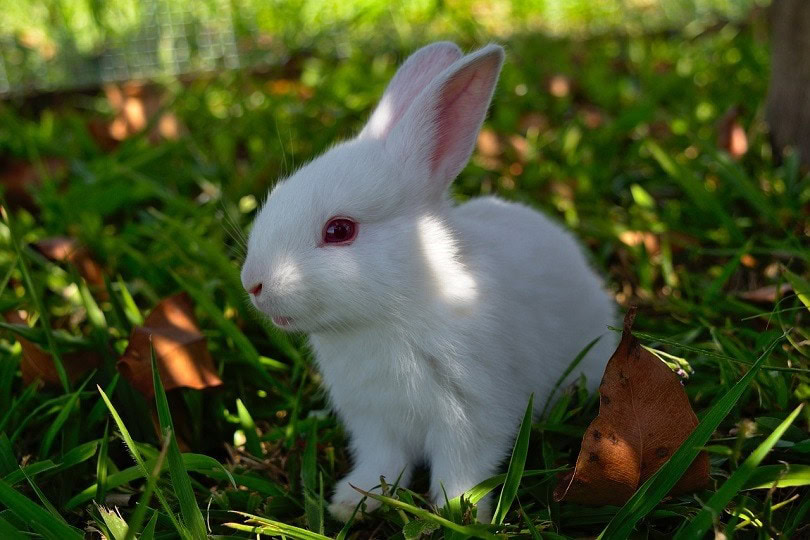
Ruby red eyes are also the result of albinism and are quite rare, especially in the wild, where the gene for albinism is recessive. However, many people like white rabbits, so many breeders create them for profit. Albino rabbits are sensitive to the sun, and you’ll need to keep them in a dimly lit environment, but they are perfectly healthy otherwise. All rabbits with red eyes will also have white fur. If you know of a rabbit with colored fur and red eyes, it could have a dangerous medical problem requiring a visit to the vet as soon as possible.
7. Marbled
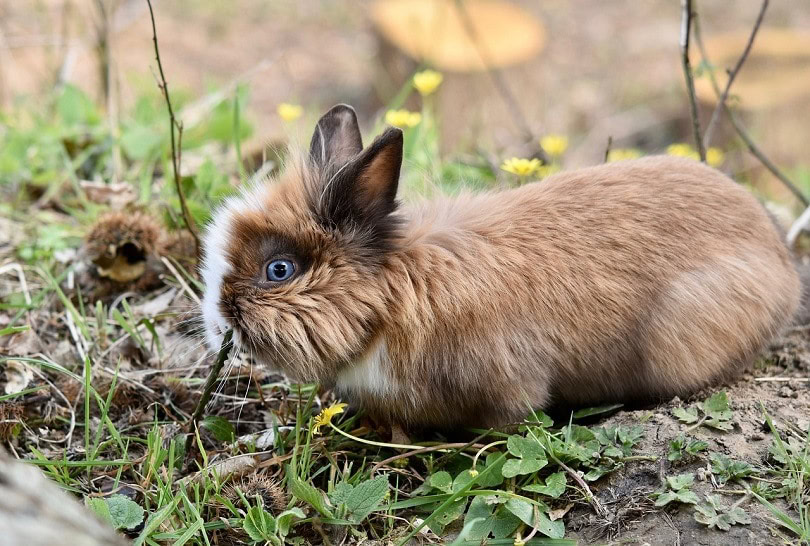
Sectoral heterochromia is an extremely rare eye color pattern responsible for marbled eyes. It results in an iris with several sections of various sizes and colors, and can result in any combination of brown, blue, and blue/grey. Each eye is independent and will display a different pattern.

Non-Color Rabbit Eyes
Besides the seven colors we’ve mentioned above, there are two other colors commonly mistaken for rabbit eye colors: flash-red and white.

Flash Red
Flash red is not an eye color at all but is the result of a camera flash. Most people familiar with flash photography are familiar with this effect in humans, and many of us have seen pictures of ourselves with red eyes. Many people may see a picture of a rabbit they like, not realizing it has red eyes due to flash photography.
White
True white is not a natural rabbit eye color. Instead, white eyes are the result of a medical condition, typically cataracts or uveitis. Cataracts occur when the lens of the eye becomes cloudy, and they are most often seen in older rabbits or rabbits with underlying health issues. The whiteness is visible through the pupil, often giving the eye a milky or bluish-white appearance.
On the other hand, uveitis involves inflammation inside the eye. Uveitis can lead to cloudiness, discomfort, and vision loss if left untreated, and may sometimes be confused with cataracts by non-specialists.

Final Thoughts
If you are shopping for a new rabbit for your home, you’ll find that most have brown eyes with the occasional blue and blue/grey-eyed rabbit found in some stores. You will likely need to find a breeder to get an albino rabbit with red eyes, but if you live in a dimly lit home, it can be a good choice. You will be lucky to find one with marbled eyes, and it might also cost the most.
We hope you have enjoyed reading over this guide and have learned something new about rabbits and their eye colors. If we have helped answer your questions, please share this guide to the seven rabbit eye colors and their rarity on Facebook and Twitter.
See Also:
Featured Image Credit: goodlynx, Pixabay
